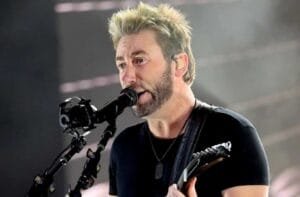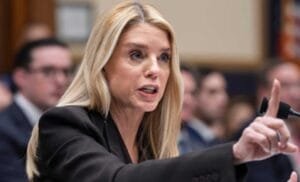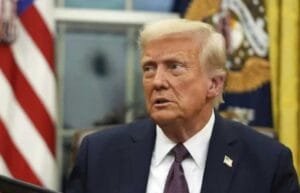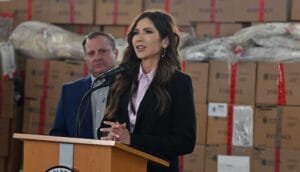RFK Jr.’s Top Vaccine Adviser Says He Answers to No One, Calls for “Scientific Integrity” in Vaccine Policy

Martin Kulldorff, the newly appointed chair of the Centers for Disease Control and Prevention’s vaccine advisory committee, says his mission is to restore public trust in vaccines, even if that means revisiting how some shots are recommended or distributed.
In an exclusive interview with POLITICO, Kulldorff said Health Secretary Robert F. Kennedy Jr., a longtime critic of vaccine safety standards, instructed him to “follow the science impartially.”
“Secretary Kennedy has said that he is not anti-vaccine,” Kulldorff told POLITICO. “He has many supporters, so I think it’s much better to believe him and trust his words. It’s good that people have questions about vaccines.”
‘Now We Know Why He Needed an MRI’: Trump’s Bizarre Two-Word Truth Social Post Baffles The Internet
Kulldorff, a Swedish-born epidemiologist and former Harvard biostatistician, took over the Advisory Committee on Immunization Practices (ACIP) in June. The influential committee helps shape the nation’s vaccine recommendations and provides guidance that often informs state school immunization requirements.
A Changing Approach to Vaccine Policy
Since assuming the role, Kulldorff has overseen decisions to remove a mercury-based preservative from certain flu vaccines and to limit use of the combined measles, mumps, rubella, and chickenpox vaccine to older children, citing a small risk of febrile seizures.
The changes have drawn criticism from public health experts who worry they could fuel skepticism and disrupt long-standing vaccination programs.
Kulldorff defended the committee’s approach, saying, “It’s about doing it in a scientific manner, so that we preserve the integrity of the schedule. Integrity leads to trust.”
Staffing Crisis Hits US Hospitals as Trump’s Visa Restrictions Stall International Medical Residents
He said he is committed to maintaining independence from political influence. “ACIP is an independent committee of independent scientists. We don’t work for the government,” he said, adding that he has met Kennedy only twice and does not speak to him regularly.
Rebuilding Trust After the Pandemic
Kulldorff said the top priority for public health officials should be restoring credibility with Americans.
“If the CDC wants to be trusted, the CDC also has to trust the public,” he said. “Many people no longer trust public health because of mistakes during the pandemic. They were told things that weren’t true.”
He added that scientists and public health officials need to be “more humble” about what they do and don’t know regarding vaccine safety, particularly when it comes to rare side effects.
When asked whether Kennedy and his Medical Alliance for Health Accountability (MAHA) movement were part of the solution, Kulldorff replied that the responsibility lies primarily with scientists.
“It’s less a political issue and more a societal one,” he said. “When the scientific community loses the public’s trust, the public won’t want to fund science.”
On Mandates and Vaccine Trials
Kulldorff expressed skepticism about vaccine mandates, saying the CDC should focus on making recommendations, not enforcing compliance.
“Mandates for the Covid vaccine were both unscientific and unethical,” he said, adding that countries like Sweden have achieved high vaccination rates without requiring school mandates.
He also reiterated his long-standing belief in the need for more randomized clinical trials to determine the safest and most effective timing for vaccines, particularly for childhood immunizations like hepatitis B and HPV.
“It’s not about withholding vaccines,” he said. “It’s about studying when they should be given to achieve the best outcomes.”
Kulldorff said restoring integrity in science will ultimately rebuild public trust. “If we have integrity, the trust will follow,” he said.





